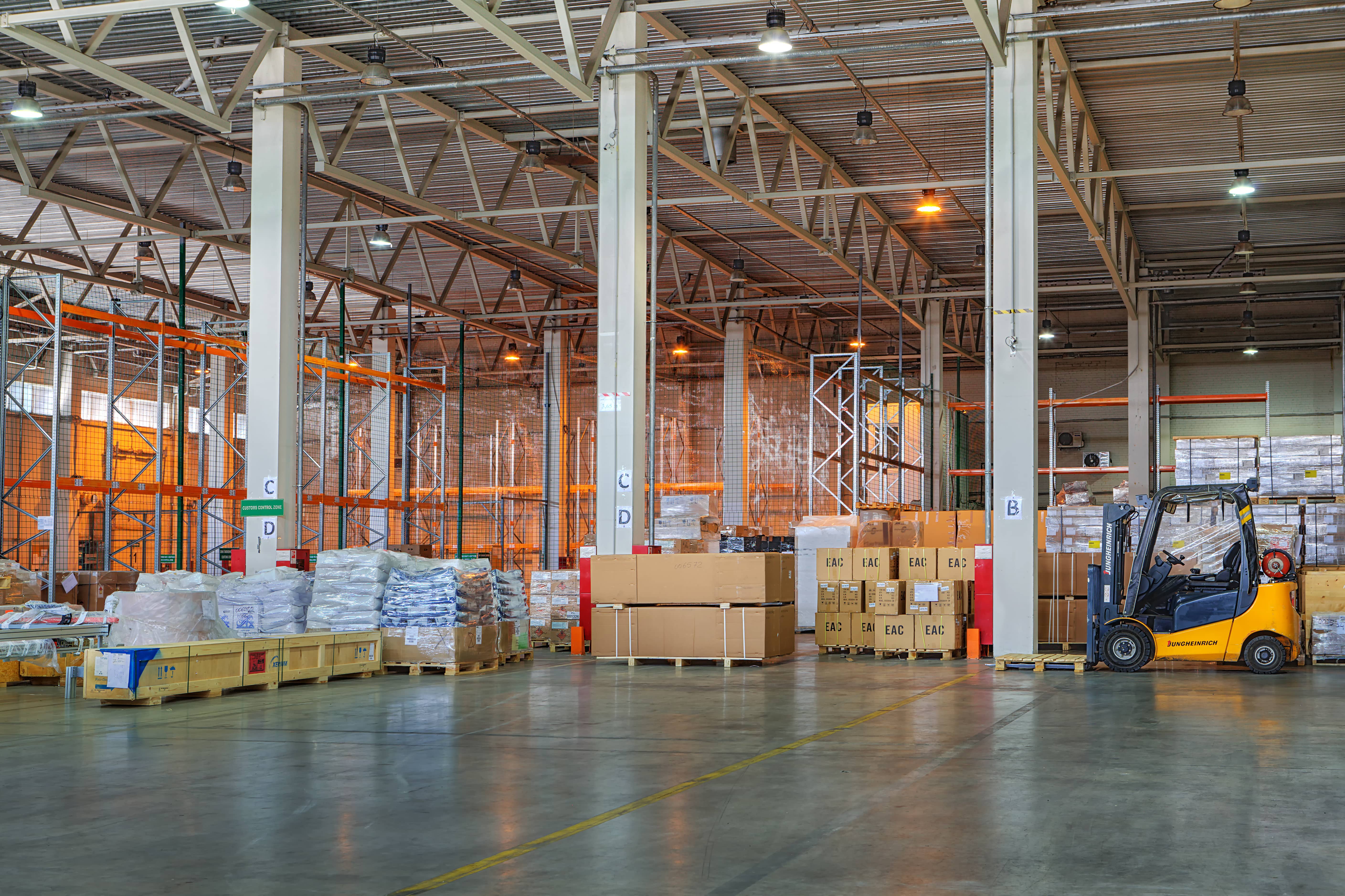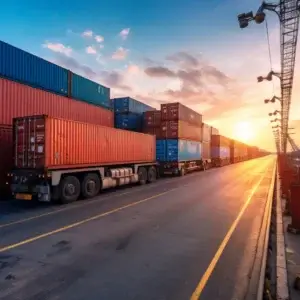When businesses experience rapid growth, they commonly consider expanding their manufacturing operations by establishing several offshore storage facilities. This decision is often justified as a means to meet the increasing customer demand while reducing costs.
However, operations can become excessively complex and expensive if these facilities lack the necessary tools, operating procedures, processing capabilities, warehousing, or shipping infrastructure. In such instances, bonded warehouses can be a valuable asset for companies of all types and sizes seeking to keep pace with high demand levels.
What Is Bonded Warehousing

Customs bonded warehouses are specialized storage facilities designed to assist companies from various industries in storing their goods in international locations until all the requisite document is processed and relevant duties are paid. The primary purpose of these warehouses is to provide a secure and reliable place where companies can store their goods while they await the completion of customs formalities.
Bonded warehouses are either privately owned or government-owned facilities situated in foreign countries. Essentially, they serve as a duty-free zone where shippers can store restricted or imported goods without incurring any duty payments until they are ready to be released for transport to their final destination.
In essence, customs-bonded warehouses allow companies to store their goods while deferring the payment of duties until they are ready to be shipped to their final destination.
How Does It Work?
For businesses looking to explore the bonded warehouse option, it’s essential to know how the whole process works. A customs-bonded warehouse provides a secure and controlled environment for storing and processing dutiable goods.
A shipment is first received in the warehouse, where the proprietor and importer incur the liability under a warehouse bond. All the necessary duties, taxes, and customs charges are deferred until the goods are ready to leave the warehouse.
Shipments stored in a bonded warehouse are mostly restricted goods like tobacco, alcohol, artworks, and other similar items. These facilities can also benefit shipments requiring special services, such as deep freeze or bulk liquid storage. While stored, bonded goods may undergo sorting, repackaging, cleaning, or manipulation under the supervision of a customs authority. If the shipment comprises raw materials, they could undergo manufacturing operations while the duties are still deferred.
Several bonded warehouses also function as fulfillment centers. Hence, these facilities manage the order fulfillment process after shipment manipulation, ensuring the goods are sent to the next destination or reach the consignee. Once shippers settle all the necessary import duties and taxes, they can withdraw the shipment for consumption.
Bonded warehousing provides a convenient option for avoiding payment of fees associated with goods until shippers withdraw them from storage and distribute them to a consignee. In other words, the costs only become payable when the goods are taken out of the warehouse, put into circulation, or sent to the final destination.
Types Of Bonded Warehouses
A bonded warehouse system can offer numerous advantages when importing or storing goods. If your business is considering implementing such a facility, it’s essential to familiarize yourself with the various types of bonded warehouses available. Understanding the different types will enable you to choose the option that best suits the unique needs of your business and operation.
- Public Bonded Warehouses
Third-party logistics providers run these commercial facilities and offer storage services to businesses or individuals. Public bonded warehouses are open to the public and provide a secure and monitored storage space for various bonded goods.
These facilities provide inventory management, order fulfillment, and distribution services, making them a one-stop shop for businesses seeking logistics solutions. They are also subject to regular inspections by customs authorities to ensure compliance with regulations and requirements.
- Private Bonded Warehouses
Unlike public bonded warehouses, these are commercial facilities owned and operated by individual businesses for their exclusive use. These facilities are not open to the public and offer complete control over cargo storage and handling. Private bonded warehouses are particularly useful for businesses that handle sensitive, high-value, or regulated goods and require extra security measures.
By owning and operating a private facility, businesses can customize these facilities to meet their unique storage and logistics needs and avoid the risks of engaging a third-party provider. It helps optimize inventory management and supply chain operations but incurs significant capital investment, maintenance, and management costs.
- Foreign Trade Zones
Foreign Trade Zones (FTZs) are secure areas within the United States that offer a cost-effective solution for importers and exporters by providing various duty and tax benefits on foreign products. Shipments that enter the FTZs are treated as if they are outside the United States for customs purposes. FTZs are particularly useful for businesses that handle goods with high customs duties or require additional processing before being distributed in the United States.
Typically, with foreign trade zones, businesses defer paying customs fees until the products are ready for consumption or distribution. However, companies can avoid paying fees entirely if the goods are re-exported from the FTZs without entering U.S. commerce. FTZs are also subject to rigorous customs regulations and oversight to ensure compliance with all applicable laws and regulations.
- Duty-Free Shops
These are retail stores usually located in international airports, seaports, and border crossings. Duty-free shops offer a range of products, including alcohol, tobacco, perfumes, cosmetics, and other luxury items, often at a lower price than in regular stores. As the name suggests, these facilities are exempted from paying certain taxes and duties that typically apply to goods sold in a regular store.
Countries offer this exemption for a variety of reasons. The shop might be in an area considered out of the jurisdiction of the country’s tax laws, or they may only sell goods to people leaving the country since they cannot consume them domestically. In the last case, customers must show proof of travel to a destination outside the country.
- In-Bond Warehouses
These facilities allow the storage of imported goods until they are ready to be moved to another location or exported without being subject to customs duties or other taxes. In-bond warehouses are typically located near ports of entry and under the U.S. Customs and Border Patrol supervision. The CBP authorizes these warehouses to store goods that are yet to be cleared through customs.
Shipments stored in in-bond warehouses are considered “bonded status.” This means they are not subject to the same taxes and fees typically applied to imported goods upon arrival to the United States. Instead, these fees are deferred until the goods are cleared by the CBP or exported.
Why Consider Bonded Warehouses
Several factors make bonded warehousing an ideal strategy for businesses. Here are some reasons why you should consider using these facilities.
- Improved Cash Flow
Bonded warehousing is an effective strategy for improving a business’s cash flow. This is because these facilities offer companies the opportunity to defer duty payments until their goods enter the market. Hence, paying taxes upfront without a sales guarantee is unnecessary.
- Port-Centric Logistics
Most bonded warehouses are strategically located around ports, allowing businesses to store shipments at the point of entry and distribute them as needed. This feature decreases costs throughout the supply chain by minimizing lead time, mitigating the risk of damage, and saving money on transportation.
Benefits Of Bounded Warehouses
The most significant benefit of bonded warehouses is the option of deferring duty payments. This provides businesses with breathing room for any extra pre-sale activity and can boost cash flow. However, other advantages make bonded warehousing an ideal option in specific scenarios.
- Extended Storage Service
Bonded warehouses are ideal for long-term storage. With these facilities, businesses can store shipments for an extended period without paying customs duties. Bonded warehouses in the United States can hold loads for five years, while U.K. facilities keep goods indefinitely.
Bonded warehouses provide a facility for long-term storage without businesses worrying about unnecessary costs until the goods are ready to be distributed or transported. These facilities can hold products for as long as needed while retaining quality.
- Safety and Security
Businesses need not worry about the safety of their shipments in a bonded warehouse as these facilities provide thorough security and protection for goods. Bonded warehouses employ modern and efficient security solutions, including cameras, inventory systems, and barcoding systems, ensuring that every shipment stored is secure and well-documented.
- Proximity to Ports
This is one feature that makes bonded warehouses the preferred choice among businesses. Several facilities are close to seaports and airports, making it easier for importers to store their products until they are ready for distribution. The proximity of these facilities to ports eliminates the lead time and potential damage to goods. It also reduces transportation costs across the entire supply chain.
Conclusion
Overall, bonded warehouses play a critical role n facilitating international trade and commerce, providing a valuable service for businesses engaged in global supply chains. However, before leveraging this strategy, it’s best to thoroughly evaluate its features and assess it with specific business requirements. Businesses should understand all the intricacies to make informed decisions. Nonetheless, bonded warehousing remains a practical option for importers and exporters.





